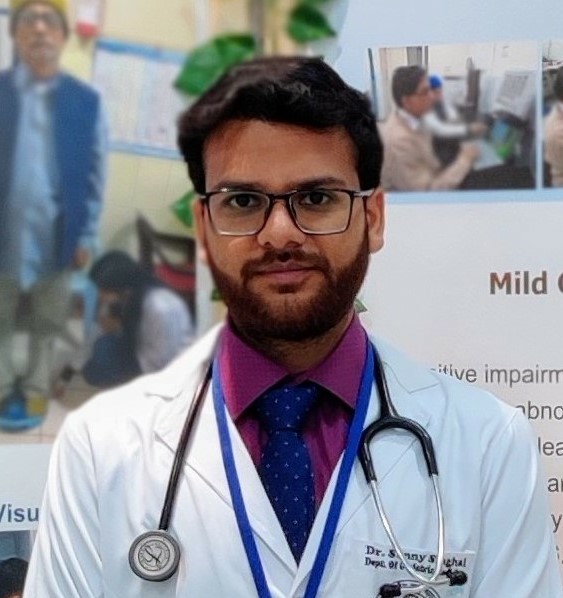Thyroid disorders are increasingly common, affecting a significant portion of the population in Jaipur and worldwide. These disorders can have a profound impact on a person’s overall health, influencing metabolism, energy levels, and more. Dr. Sunny Singhal, a leading thyroid doctor in Jaipur, employs a comprehensive approach to diagnose thyroid disorders accurately and efficiently. Here’s how he goes about it:
1. Patient History and Symptoms Evaluation
The diagnostic process begins with a detailed patient history. Dr. Sunny Singhal carefully listens to the patient’s symptoms, which can include fatigue, weight changes, mood swings, neck swelling, and more. He also inquires about family history, past medical conditions, and lifestyle factors that might influence thyroid function.
2. Physical Examination
A thorough physical examination is conducted to check for signs indicative of thyroid disorders. Dr. Sunny Singhal palpates the neck to detect any enlargement of the thyroid gland (goiter) or nodules. He also looks for physical signs such as dry skin, hair loss, tremors, and changes in reflexes, which can be associated with thyroid dysfunction.
3. Blood Tests
Blood tests are a crucial component of diagnosing thyroid disorders. Dr. Sunny Singhal typically orders the following tests:
Thyroid Stimulating Hormone (TSH) Test: This is often the first test done to assess thyroid function. Abnormal levels of TSH can indicate either hypothyroidism (underactive thyroid) or hyperthyroidism (overactive thyroid).
Free T4 and Free T3 Tests: These tests measure the levels of thyroid hormones in the blood. Elevated or decreased levels can help pinpoint the specific type of thyroid disorder.
Thyroid Antibodies: To identify autoimmune thyroid conditions such as Hashimoto’s thyroiditis or Graves’ disease, Dr. Sunny Singhal may test for thyroid peroxidase (TPO) antibodies and thyroglobulin antibodies.
4. Imaging Studies
If the physical examination and blood tests suggest abnormalities, Dr. Sunny Singhal might recommend imaging studies:
Ultrasound: An ultrasound of the thyroid gland helps in visualizing the structure of the thyroid. It can detect nodules, cysts, and other structural changes.
Radioactive Iodine Uptake Test: This test measures how much iodine the thyroid gland absorbs from the bloodstream, which can help in diagnosing hyperthyroidism and differentiating between various causes of thyroid dysfunction.
Thyroid Scan: A thyroid scan provides detailed images of the thyroid gland and helps in assessing the size, shape, and position of the gland and any nodules present.
5. Fine Needle Aspiration (FNA) Biopsy
If nodules are detected on the thyroid gland, Dr. Sunny Singhal may perform a fine needle aspiration biopsy to collect a sample of thyroid tissue. This sample is examined under a microscope to determine if the nodules are benign or malignant.
6. Comprehensive Review and Diagnosis
After gathering all the necessary information from patient history, physical examination, blood tests, and imaging studies, Dr. Sunny Singhal performs a comprehensive review. He considers all findings to make an accurate diagnosis. If needed, he collaborates with endocrinologists and other specialists to ensure a multidisciplinary approach to the patient’s condition.
Conclusion
Diagnosing thyroid disorders requires a methodical and detailed approach. As a seasoned thyroid doctor in Jaipur, Dr. Sunny Singhal combines his extensive knowledge with advanced diagnostic tools to ensure accurate and timely diagnosis of thyroid conditions. His patient-centric approach ensures that each individual receives personalized care, leading to better management and outcomes for those with thyroid disorders.





Comments